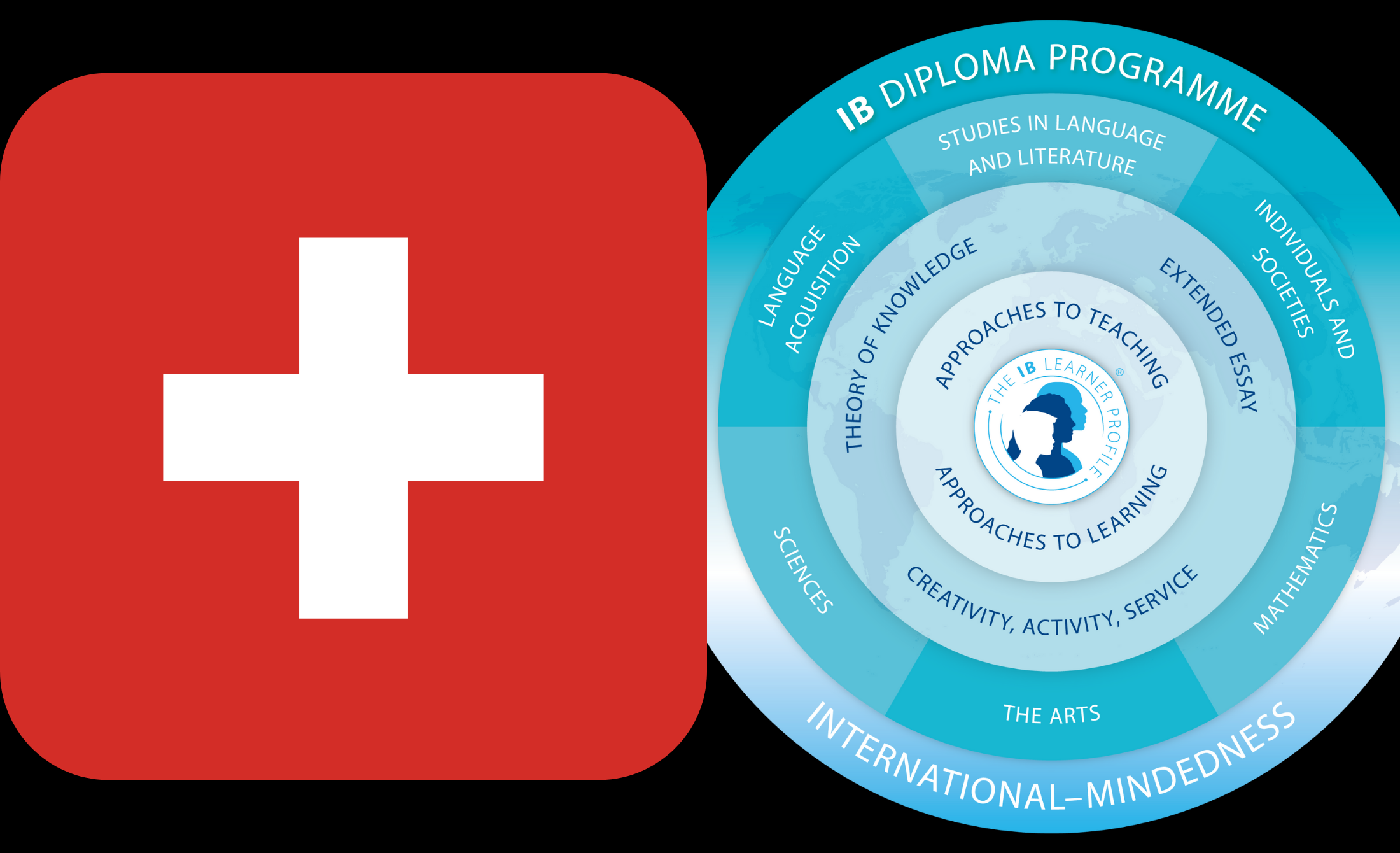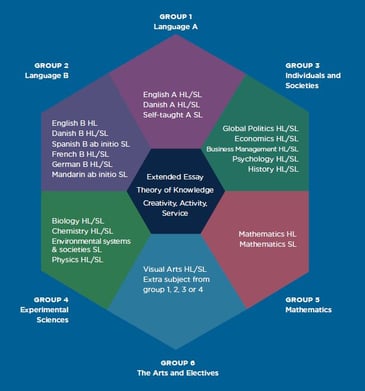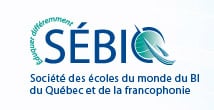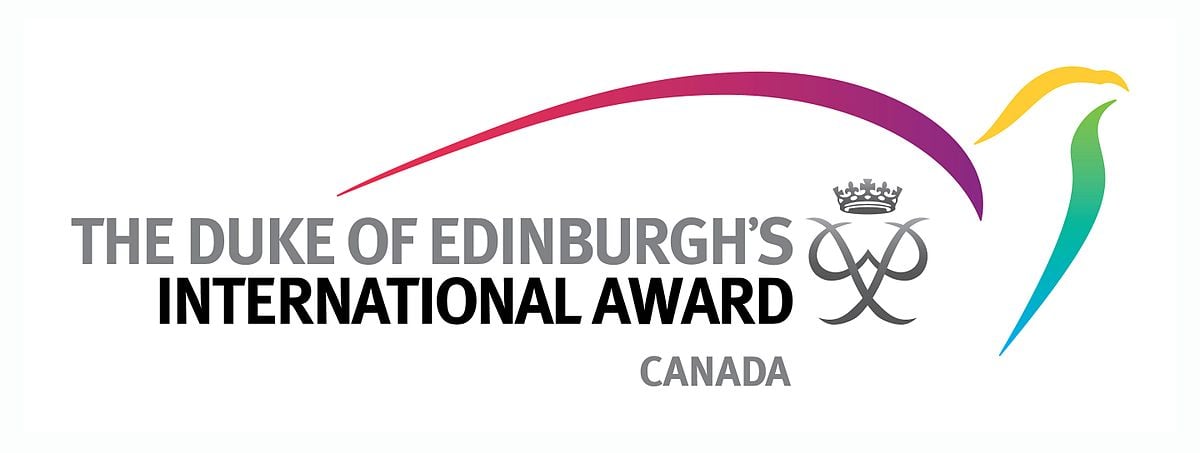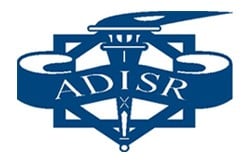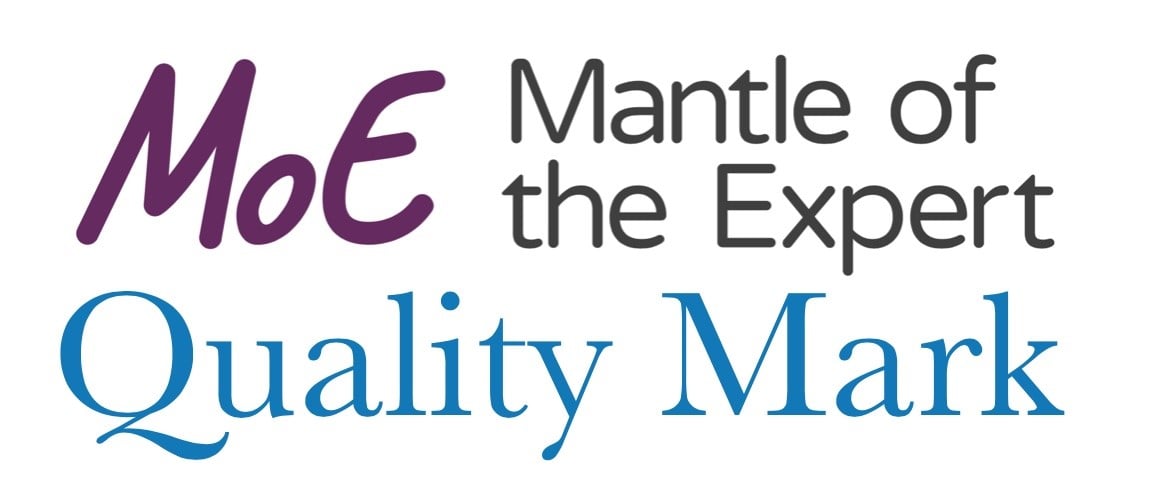Trying to understand the difference between these two courses has long been a source of trouble for many local and expat families in Switzerland.
So we’ve set out to clear things up a little and help parents find the right schooling system for their child.
Let’s start simple - what is the Swiss Maturity Diploma?
- The Swiss Maturity Diploma is one of the three recognised educational pathways in Switzerland.
- It is accredited by the Swiss Confederation and provides students with a strong educational foundation based on 9 different disciplines.
- The Vaud Department of Education has plans to standardise exams, which means all students in the canton will sit the same papers, even if in different schools.
- It is the main pathway to university and other higher education studies for students in the Swiss public-school system.
- The Swiss Maturity diploma grants students access to all universities in the country, regardless of their marks.
And the International Baccalaureate Diploma Programme?
- The IBDP is a well-defined and well-documented programme studied by thousands of students worldwide every year.
- Students become well-rounded through the study of six different subject groups, of which language, science and mathematics are compulsory.
- Students are able to deepen their knowledge in the areas that most interest them thanks to a higher level – standard level system.
- All exams and marking schemes are standardised, meaning that earning 40 IBDP points at Haut-Lac is akin to earning 40 points in all other countries.
What are the major differences with regard to subject choice?
Visuals best illustrate the subject differences exist between the IBDP and Swiss Maturity, so we’ve added some handy diagrams below.
IBDP
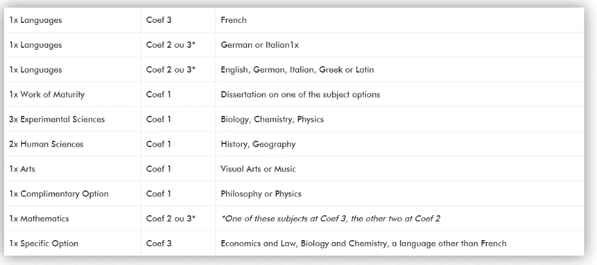 Maturité
Maturité
What are the disadvantages of the Swiss Maturity Diploma?
- The Swiss Cantonal Maturité programme was last reviewed in 1995 in the Canton of Vaud.
- The Swiss Maturity is currently studied over 3 years in the Canton of Vaud, but the cantonal authorities are looking to make it a 4-year programme as is already the case in most other cantons.
- The Swiss Maturity is not as widely-recognised by universities outside of Switzerland, which makes the admission process more complicated. Few Swiss students therefore apply for studies elsewhere.
- As the exams are run independently by each school, the papers vary in difficulty from school to school.
- The Swiss Federal Maturité is often confused with the Swiss Cantonal Maturité programmes, which differ in curricula and assessment from canton to canton. Whilst the Federal course is marked externally, the Cantonal ones are internally assessed, which lead to some countries and universities questioning its validity. As such, countries like the UK demand extremely high grades of Swiss students.
- Set between August and early September, the end-of-programme exams are later than the IBDP ones. It is therefore virtually impossible to submit results before the start of term at many European universities.
- On average, 30% of students in Switzerland don't finish their higher education studies, one of the highest rates among OECD countries.
- 50%-60% of students with a Swiss Maturité diploma fail their first year at the EPFL, and 22% at UNIL (University of Lausanne).
What are the disadvantages of the IB Diploma in relation to the Swiss Maturity?
- Certain IBDP courses, like art, film and music, are not currently accepted by Swiss universities.
- Some Swiss universities like the EPFL require IB diploma students to take specific level courses such as standard level math, as well as pass with a high number of points.

And the main advantages of the IBDP?
- The IBDP is used in over 140 countries, and thus recognised by most universities worldwide.
- A student’s final mark is based on both the coursework completed throughout the year and the final exams at the end of DP2.
- The IBDP prepares students for the 21st century through the development of key soft skills like open-mindedness and critical thinking.
- The IBDP is a modern approach to teaching, where syllabi are regularly updated, new exam formats are implemented and the student is at the centre of the programme.
- According to a study by the EPFL, only 43% of state school graduates successfully pass their first year at university vs the 61% first year pass rate of students with an international certification
- Courses may be taught in English from the 2nd year onwards at the EPFL, so an excellent level of understanding in this language is key.
Both courses prepare students for success in the professional world after graduation. But in our eyes, the IB is about more than that. It is a way of life and of thinking that encourages students to develop each of their skills and talents, so that when they begin their next step, they really shine.
Bram Harton


